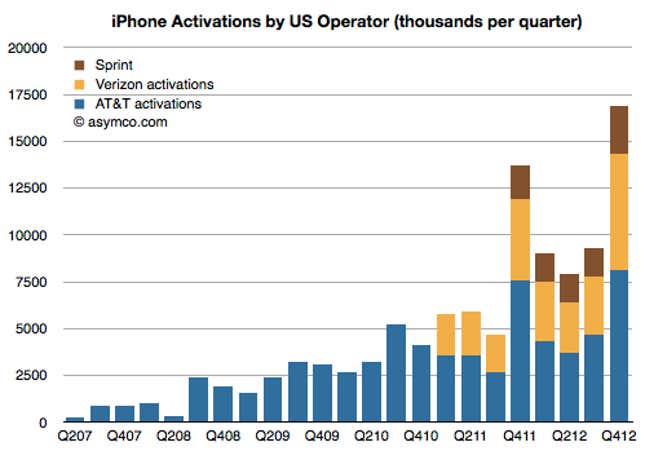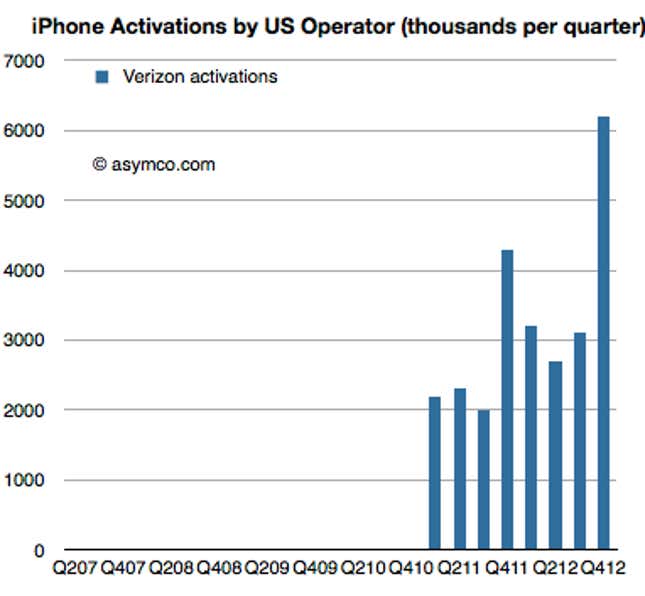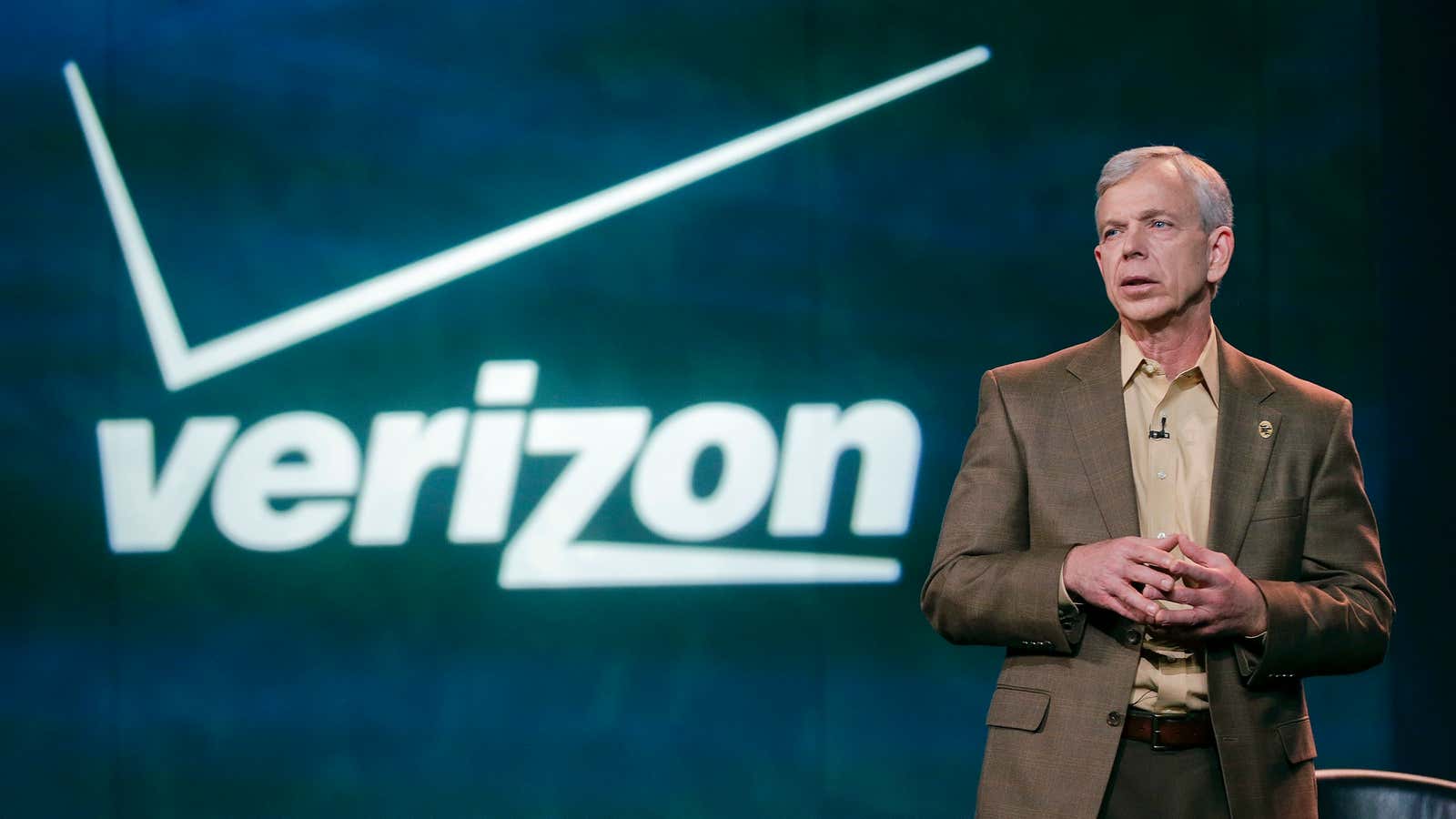In Verizon’s fourth-quarter earnings report, released today, the good news is also the bad news: Record activations of new smartphones have squeezed Verizon’s profits, as the company is forced to pay a subsidy on every one of those expensive gadgets. Verizon’s business model in the United States, its largest market, is to offer customers fancy toys—like Apple’s iPhone 5 and Samsung’s Galaxy S III—for as little as a third of what Verizon pays the manufacturer.
In a way, those smartphone activations represent loss-leading subscriptions to Verizon’s pricey smartphone plans. With millions of new subscribers slurping down data on their phones, Verizon’s medium-term prospects look better than ever (as long as the company can resolve difficulties with its pension plan).
Here, courtesy of mobile industry analyst extraordinaire Horace Dediu at Asymco, is what that looks like for overall iPhone activations:

Verizon sold 9.8 million smartphones in the fourth quarter of 2012, and about two-thirds, or 6.2 million, were iPhone models from Apple. About half of those 6.2 million iPhones were iPhone 5 models, said Verizon CFO Fran Shammo.

The share of Verizon’s smartphones made by Apple in this quarter represents a significant uptick from previous quarters: 63% versus an average of 47% over the past five quarters. There is also some evidence that a disproportionate share of the iPhones that Verizon is selling are the high-end, fully-loaded models with 64 gigabytes of flash storage.
Verizon didn’t break out the number of iPhones that were purchased by first-time customers, but there are two numbers that are indicative of the kind of success that the iPhone has brought to America’s number-two mobile carrier:
- First-time buyers of smartphones comprised 42% of those buying smartphones from Verizon.
- First-time Verizon customers and people switching to Verizon from some other mobile network comprised 30% of those buying smartphones from Verizon.
In other words, some combination of iPhone and Android smartphones convinced millions of people to upgrade to a smartphone and/or upgrade to Verizon’s “LTE” network, which is faster and more widespread than the network of its nearest competitor, AT&T.
